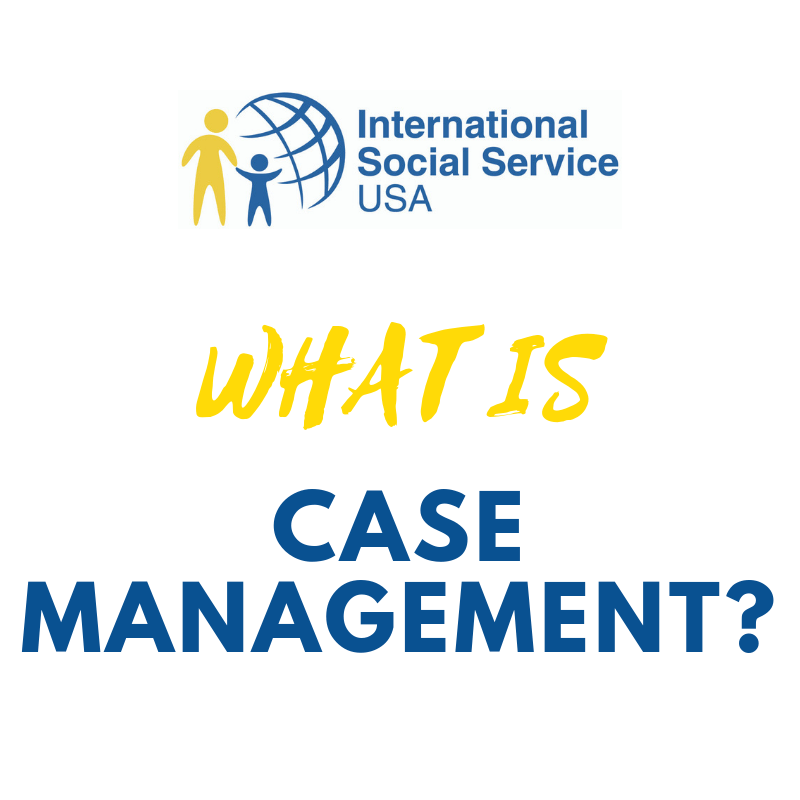Earlier this month, the ISS-USA office moved to a new building. Anyone who has experienced the stress of an office move can relate: finding a new space, hiring movers, setting up the internet, and so many additional elements must be coordinated!
Luckily, ISS-USA employs many case managers who are experts in coordination.
Case management and social work have been linked since the early days of the profession. Today, case management is a skill set primarily practiced in fields of social work, nursing and other human services, and is commonly used to address needs of vulnerable populations. There are numerous definitions for case management, in both the U.S. and international contexts. Definitions of Case Management all include a few basic tenets:
Improving well-being:
The goal in case management is to improve outcomes for individuals or families by connecting them to services and supports that meet their individual needs. This may be related to dealing with an illness or injury, ensuring a child in foster care is cared for while awaiting permanency, or supporting individuals with substance use and mental health issues.
Case-specific:
While the ultimate goal in case management is improved wellbeing, the route to get there looks different for each person. One patient with a chronic illness may need support with medication management and affordable housing. Another patient may need help accessing reliable medical care, managing bills, and finding daycare for her dependent children. Goals are set by based on the individual receiving support, and plans to achieve these goals require that person’s active involvement and buy-in.
Multiple Service:
Since every case plan looks different based on individual needs and goals, case managers cannot provide each needed service directly. Rather, they work with service providers across a variety of disciplines to coordinate referrals, appointments, services, and follow up. For many, interrelated issues such as medical care, housing, and substance abuse cannot be addressed by a single entity. Having a single case manager to serve as the contact person helps ensure each need is addressed with timely follow up and coordination.
At ISS-USA, case management follows the same basic principles when working on cases of children and vulnerable adults crossing international borders. Case managers are responsible for understanding the unique needs of each case and coordinating services between authorities and providers in two countries or states.
For example, six year old Melissa, a client of ISS-USA, was taken into care in Israel as a result of signs of neglect by her mother. Her father lived with her grandparents in Michigan and requested custody of his daughter. The ISS-USA case manager worked with our partner in Israel to provide the judge a home study on the paternal relatives in Michigan to ensure the home was safe, and a community resource survey to identify the educational, medical, recreational, religious and community supports that would be available to Melissa in the U.S. After a judge granted custody to Melissa’s father, ISS-USA helped coordinate travel and post placement follow up to make sure Melissa is enrolled in school, being followed by a pediatrician and adjusting to her new family environment.
Case managers rarely are rarely in the spotlight, but provide an essential specialization. Next time you are sitting with a family member in the hospital, looking to support a vulnerable child, or simply embarking on a move, think about how much you’d like a case manager on hand.
To learn more about ISS-USA’s services for children and families, visit our website, www.iss-usa.org. To register for ISS-USA’s upcoming October conference, “Beyond Separation: Protecting Cross Border Families,” use this link: https://www.eventbrite.com/e/beyond-separation-protecting-cross-border-families-two-day-conference-with-training-institute-tickets-63113700778.
